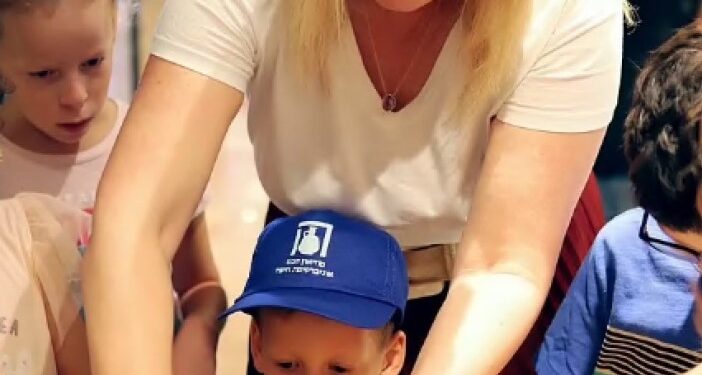A THOUGHTFUL museum boss has invited back the boy who accidentally shattered a rare 3,500-year-old jar to watch how experts restore it.
Last week, the four-year-old accidentally shattered it after trying to peer inside it at Israel’s Hecht Museum in Haifa.
The ancient relic had been on display for 35 years before the clumsy incident fragmented it into multiple pieces.
But luckily for the little boy’s family, museum director Dr Inbal Rivlin said: “Don’t be afraid, we have no claim against you”, citing its unintentional nature, according to Sky News.
Panicked dad Alex Geller prayed his child was not the one responsible for the sharp noise in the busy museum and even offered to pay them for the damage.
He was relieved to hear that the artefact was insured and once CCTV confirmed the incident was accidental, Dr Rivlin invited them back for a make up visit where the Gellers could watch the jar being fixed.
The sympathetic museum director said she wanted to use the restoration as an educational opportunity to make sure the Gellers felt welcome to return.
Experts used 3D technology and high resolution videos to restore the jar which is hoped to be back on display as soon as next week.
Alex said: “That’s whats actually interesting for my older kids, this process of how they’re restoring it, and all the technology they’re using there.”
The tot, named Ariel, lives with mum Anna and dad Alex in northern Israeli town of Nahariya.
They were visiting the museum, associated with Haifa University, when Anna looked away for just a moment.
Ariel was glancing at artefacts before he stumbled across the remarkable Bronze Age jar that dates back to between 2200 and 1500 BC and a dramatic crash sounded as he peered in.
Embarrassed mum-of-three Anna was taken aback by the
accident but desperately tried to calm Ariel down.
“He told me he just wanted to see what was inside.”
The apologetic kid was so remorseful that he gifted the museum a clay vase of his own.
Roee Shafir, a restoration expert at the museum, stressed that the repairs would be quite simple as the pieces were from a single, complete jar.
Usually, archaeologists face the more daunting task of sifting through piles of shards from multiple objects and trying to piece them together.
Shafir, who was tasked with painstakingly reassembling the jar, maintained that the artefacts should remain accessible to the public, despite last Friday’s accident.
He explained that this is because touching an artefact can inspire a deeper interest in history and archaeology.
“I like that people touch. Don’t break, but to touch things, it’s important.”
The Hecht Museum has a unique policy of displaying artefacts without glass for tourists’ accessibility.












